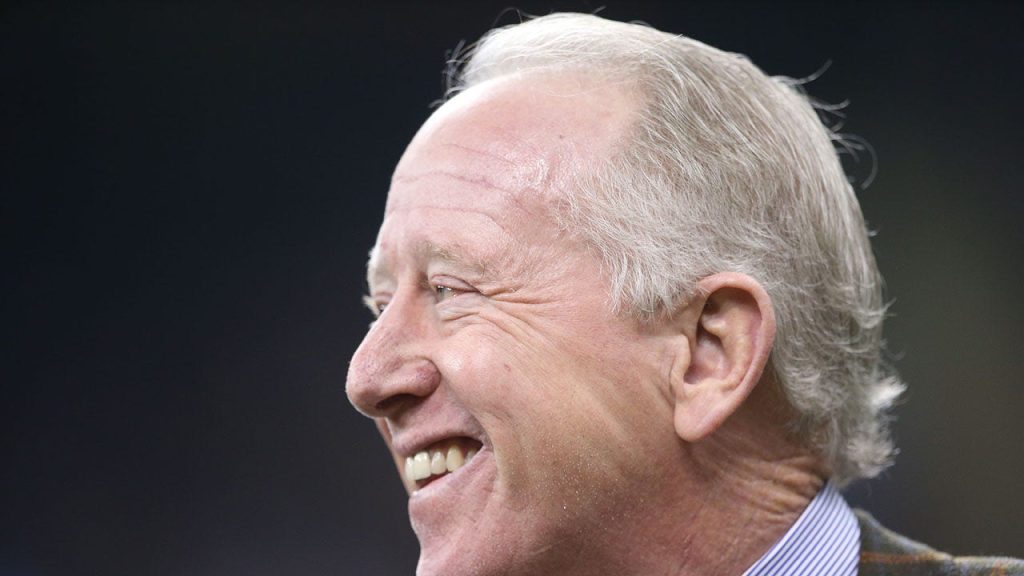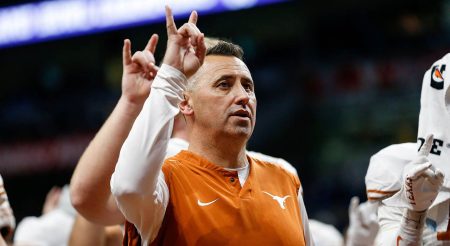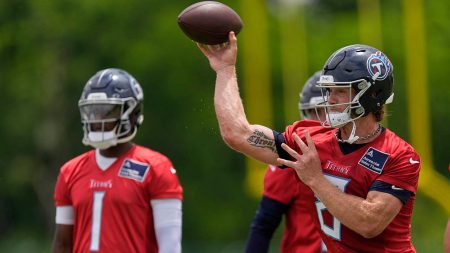Arch Manning, the latest scion of football’s renowned Manning family, embarked on a highly publicized recruiting journey before ultimately choosing the University of Texas as his collegiate destination. His decision carried significant weight, given the family’s rich football legacy, with his uncles, Peyton and Eli Manning, and grandfather, Archie Manning, all having established their gridiron credentials at Southeastern Conference (SEC) institutions before transitioning to successful NFL careers. The timing was particularly noteworthy as Texas had recently joined the SEC, adding an intriguing layer to Arch’s college football narrative.
Arch’s freshman year at Texas saw him take on a limited role, primarily observing from the sidelines. However, his sophomore season provided him with a more prominent platform, including a stint as the starting quarterback due to an injury sustained by incumbent starter Quinn Ewers. Despite the increased playing time and growing spotlight, the 19-year-old Manning remains ineligible for the 2025 NFL Draft, requiring him to continue honing his skills at the collegiate level. However, his grandfather, Archie Manning, has already begun contemplating Arch’s potential future in the professional ranks, expressing a preference for his grandson to land with the Dallas Cowboys.
Archie Manning’s affinity for the Cowboys as a potential landing spot for Arch stems from a combination of factors, including the team’s high profile and historical significance within the NFL. While acknowledging that he has no direct influence over the draft process, Archie’s preference for the Cowboys reflects his desire to see his grandson compete for a storied franchise with a passionate fan base. The Cowboys, despite their recent struggles to reach a conference championship game, maintain a prominent position in the league’s landscape, making them an attractive destination for aspiring NFL players.
Archie Manning’s public expression of support for the Cowboys as a potential future team for Arch highlights the complex dynamics at play in the NFL draft process. While players’ talent and performance are paramount, external factors, including family preferences and agent influence, can also play a role. The Manning family’s history of exerting influence in draft decisions, particularly in the case of Eli Manning’s aversion to playing for the San Diego Chargers, adds another dimension to the speculation surrounding Arch’s future. The Chargers ultimately drafted Eli but traded him to the New York Giants, a move widely believed to have been orchestrated by the Manning family.
Arch Manning’s sophomore season at Texas showcased glimpses of his potential, demonstrating both his passing prowess and his ability to contribute with his legs. He amassed 939 passing yards, throwing for nine touchdowns and two interceptions in seven appearances for the Longhorns. His rushing ability added another dimension to his game, accumulating 95 yards and four touchdowns on the ground. While a decisive victory in the SEC championship game eluded Texas, with a narrow overtime loss to Georgia, Arch’s performance throughout the season offered promising signs for his future development.
The convergence of Arch Manning’s burgeoning talent, his family’s storied football legacy, and the allure of playing for a high-profile franchise like the Dallas Cowboys creates a compelling narrative for the young quarterback’s future. While his NFL journey remains several years away, the speculation surrounding his potential destination has already begun, fueled by his grandfather’s candid preference for the Cowboys. As Arch continues to develop his skills and navigate the challenges of college football, the anticipation surrounding his eventual entry into the NFL will undoubtedly intensify, making him one of the most closely watched prospects in the coming years.










